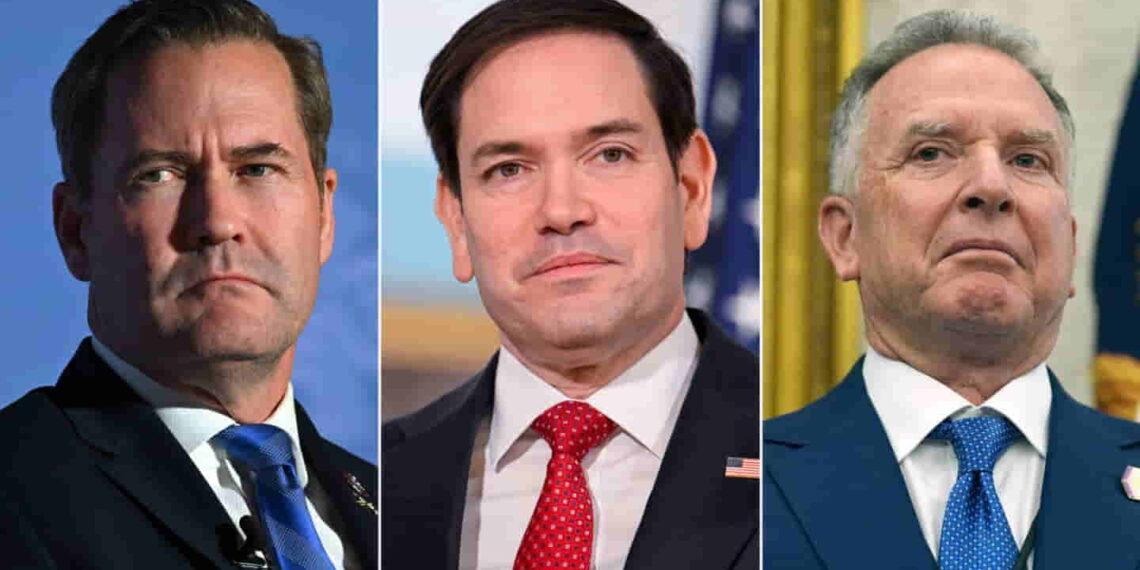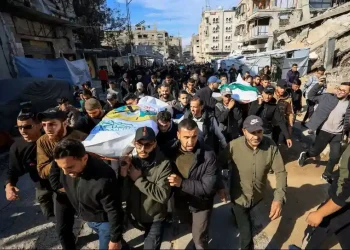Trump Officials to Meet Russian Leaders for Ukraine Peace Talks
Key U.S. officials are set to meet with senior Russian representatives in Saudi Arabia to initiate discussions on ending the war in Ukraine.
High-Level U.S.-Russia Talks in Saudi Arabia
Senior members of the Trump administration are preparing to engage in direct negotiations with Russian officials to explore potential resolutions to the Ukraine conflict. According to sources, the discussions will take place in Saudi Arabia in the coming days.
Key U.S. Representatives in the Talks:
- Mike Waltz – National Security Adviser
- Marco Rubio – Secretary of State
- Steve Witkoff – Middle East Envoy
The U.S. delegation is expected to meet with high-ranking Russian political, intelligence, and economic figures. Among them is Kirill Dmitriev, a key Russian official who played a behind-the-scenes role in a recent U.S. prisoner release deal.
President Donald Trump recently emphasized that negotiations to end the war will begin “immediately,” following what he described as a “lengthy and highly productive” phone call with Russian President Vladimir Putin.
Saudi Arabia’s Role in the Peace Effort
Saudi Arabia’s Crown Prince Mohammed bin Salman has emerged as a critical mediator in these discussions. Trump hinted that Saudi Arabia would likely host the first high-level meeting, although no final decision has been made.
Steve Witkoff, Trump’s Middle East envoy, praised the Saudi leader for his efforts in securing the release of wrongfully detained American citizen Marc Fogel earlier this week, underscoring the kingdom’s growing diplomatic influence.
State Department Confirms U.S.-Russia Communication
Secretary of State Marco Rubio, who is currently in Israel, held a call with Russian Foreign Minister Sergey Lavrov ahead of the scheduled talks.
According to State Department Spokesperson Tammy Bruce:
- Rubio reaffirmed Trump’s commitment to ending the war.
- The two officials discussed broader U.S.-Russia relations.
The Russian Foreign Ministry also confirmed the call, stating that the two sides agreed to maintain regular contact and prepare for high-level discussions.
What Concessions Will Russia Make?
Keith Kellogg, Trump’s envoy for Ukraine and Russia, suggested that Moscow will have to make territorial and strategic concessions.
Key Points from Kellogg’s Statement:
- The U.S. aims to force Russia into compromises through economic pressure and diplomatic leverage.
- One strategy includes disrupting Russia’s alliances with Iran, North Korea, and China—which have strengthened in recent years.
- The U.S. will target Russia’s oil revenue through stricter sanctions to weaken its war economy.
“Seventy percent of the money Russia is using to fund this war comes from oil and gas,” Kellogg noted, emphasizing the need to “break Moscow’s economic back.”
Trump himself has been noncommittal about the exact concessions Russia must make, stating:
“It’s too early to say. Maybe Russia will give up a lot. Maybe they won’t. It all depends on what happens.”
Will Europe Be Included in the Talks?
According to Kellogg, Europe will not be at the negotiating table in the early stages of the talks.
- Ukraine will be represented in the discussions.
- European nations will likely be excluded, as Kellogg cited the failure of previous agreements like Minsk II in 2015.
- The negotiations are moving forward on two separate tracks—one for Russia and another for Ukraine.
This exclusion has sparked concerns among European leaders, as Germany’s Foreign Minister Annalena Baerbock called it a “moment of truth” for Europe to unite and push for a meaningful peace deal.
The Bigger Picture
These upcoming negotiations represent a major shift in U.S. foreign policy under the Trump administration. With direct U.S.-Russia talks on the horizon, European leaders must determine their role in the evolving geopolitical landscape.
While Trump’s team aims for a swift resolution, the complexity of territorial disputes, alliances, and economic sanctions will determine the success of these historic negotiations.
This article was rewritten by JournosNews.com based on verified reporting from trusted sources. The content has been independently reviewed, fact-checked, and edited for accuracy, neutrality, tone, and global readability in accordance with Google News and AdSense standards.
All opinions, quotes, or statements from contributors, experts, or sourced organizations do not necessarily reflect the views of JournosNews.com. JournosNews.com maintains full editorial independence from any external funders, sponsors, or organizations.
Stay informed with JournosNews.com — your trusted source for verified global reporting and in-depth analysis. Follow us on Google News, BlueSky, and X for real-time updates.














